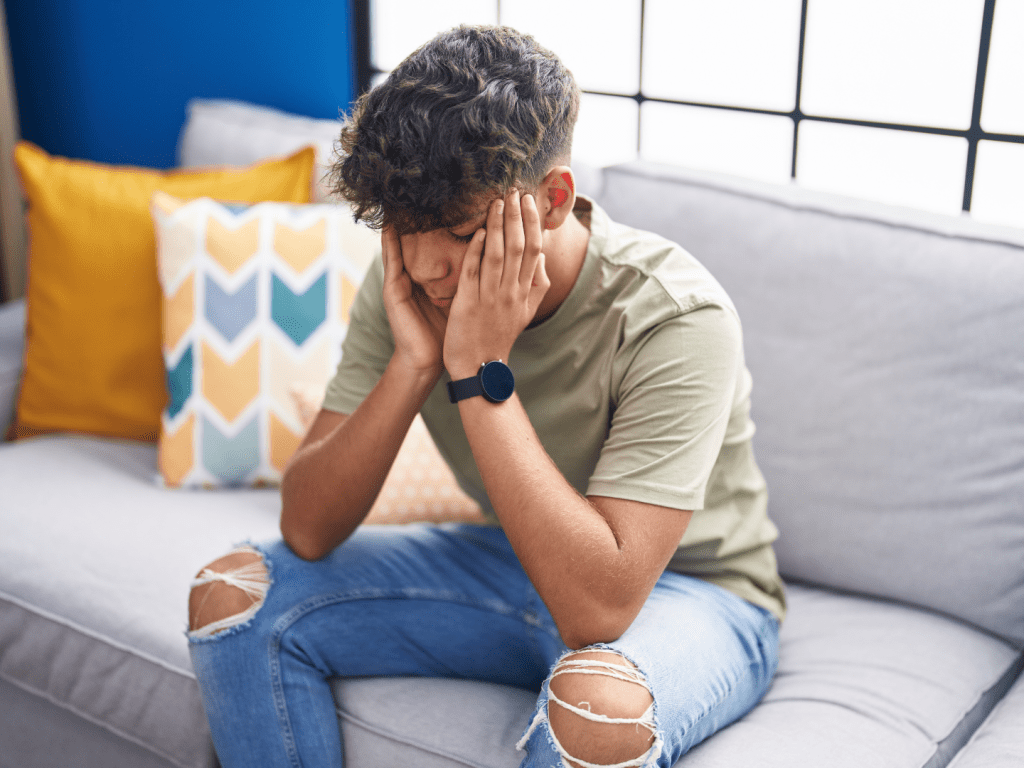Mental health consciousness has come a great distance lately, with platforms, advocates, and conversations shedding gentle on its significance. But, regardless of this progress, stigma surrounding therapy stays deeply ingrained—particularly amongst Gen Z, the very era usually heralded for his or her openness in discussing mental health struggles on-line. In accordance with findings from BetterHelp’s State of Stigma Report, which surveyed over 16,000 people throughout 23 international locations, practically 37% of Gen Z view looking for counseling as an indication of “psychological weak point.”
This contrasts sharply with previous generations, the place solely 22% of respondents—spanning millennials, Gen X, and Child Boomers—share the identical viewpoint. The report highlights a puzzling contradiction that exists amidst a rising psychological well being care disaster: though 73% of People acknowledge the vital position psychological well being assist performs in total well-being, societal attitudes, stereotypes, and misinformation proceed to behave as roadblocks for a lot of, particularly younger folks.
At a time when Gen Z faces mounting systemic challenges, skyrocketing ranges of hysteria (they’re greater than 2x as doubtless as Boomers to expertise delicate to average nervousness and nearly 4x as prone to expertise extreme nervousness), and melancholy, and unprecedented digital pressures, this pervasive stigma dangers deepening the limitations to accessing care. Beneath, we discover the disconnect between Gen Z’s outward psychological well being advocacy and their reservations round therapy, highlighting the various factors at play and what may be achieved to assist this explicit era overcome fears and misconceptions about remedy and search the assist they want.
Cultural and Social Elements
Technology Z (Gen Z) contains people born between 1995 and 2012. As talked about above, whereas this era is open to discussing their psychological well being struggles, there’s a stigma surrounding truly looking for assist. However first, let’s break down why Gen Z is extra depressed and anxious than prior generations. Primarily, a myriad of political, financial and social traits appear to be the supply (local weather change, rising value of dwelling), with globally, extra individuals are prone to begin with private instruments, like mindfulness, somewhat than skilled assist.
For instance, in accordance with the State of Stigma Report, social media platforms have change into casual areas for psychological well being conversations making folks really feel extra related and knowledgeable. Nonetheless, for a lot of, it’s simpler to speak on-line than in remedy. That is the era that grew up with the web, and whereas that may result in elevated social outreach, it additionally leaves room for extra bullying, and fewer bodily contact. And in accordance with the CDC, social isolation and loneliness are widespread issues within the U.S., posing a critical menace to our psychological and bodily well being. Listed here are some stats to think about:
•Amongst Gen Z, these most on-line are additionally extra prone to choose group remedy over particular person and will hunt down extra religious steering extra so than different teams.
•Individuals who spend 4+ hours each day on social media are 57% extra prone to imagine psychological well being care fails to enhance wellbeing in comparison with individuals who abstain from social media.
•They’re additionally nearly twice as prone to really feel judged for looking for assist, 45% extra prone to imagine remedy hardly ever solves private issues in comparison with individuals who abstain, and extra prone to talk about psychological well being issues on-line than with a therapist in comparison with these spending much less time on social media.
The Stigma Round Remedy
In accordance with BetterHelp’s Report, stigma can result in social isolation, low vanity, elevated stress, and problem in each day productiveness. Stigma comes from a lack of awareness and instantly impacts people with psychological sickness but additionally the family members who assist them, usually together with their members of the family. Usually, folks keep away from or delay looking for therapy attributable to issues about being handled in a different way or fears of dropping their jobs and livelihood, in accordance with the American Psychiatric Affiliation. There are a selection of causes, somebody might delay or not search assist in any respect.
These embrace inaccurate media portrayals, cultural beliefs, historic mistreatment of the mentally ailing, lack of psychological well being information, which contributes to the concept folks with psychological sickness are harmful and incompetent, and financial limitations i.e. well being prices, restricted funding, insurance coverage protection, and so on, and worry of discrimination from pals, household, an employer, or perhaps a healthcare skilled attributable to somebody’s psychological well being struggles. Forty p.c of Gen Z say value is the principle motive they don’t prioritize their psychological well being, whereas 29% say they don’t suppose it’ll assist or don’t have the time. Moreover, 37% of Gen Z say their therapist doesn’t perceive them, or they don’t belief their therapist (33%).
Shifting the Narrative & Debunking Misconceptions
Whereas strides have been made in ending the stigma round psychological well being, there may be nonetheless a lot work that have to be achieved. By means of schooling and ongoing assist, BetterHelp goals to assist communities overcome fears and misconceptions about psychological well being. Looking for psychological well being therapy is an act of bravery, and overcoming the worry of stigma is essential for therapeutic and well-being.
BetterHelp’s inaugural State of Stigma findings spotlight the significance of ending the bias round psychological well being and growing psychological well being literacy. BetterHelp customers world wide are proof of what’s doable with 82% of customers saying they’d advocate their therapist to another person and 72% saying they noticed a discount in signs.* For fogeys, it’s vital to keep in mind that in case your youngster is struggling, making a secure area the place they will speak about is step one to addressing their psychological well being wants and serving to them on their journey to get correct psychological well being care.
*These outcomes replicate self-reported knowledge collected utilizing PHQ-9 and GAD-7 scores. Particular person outcomes might differ.
